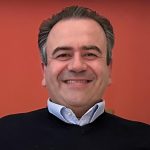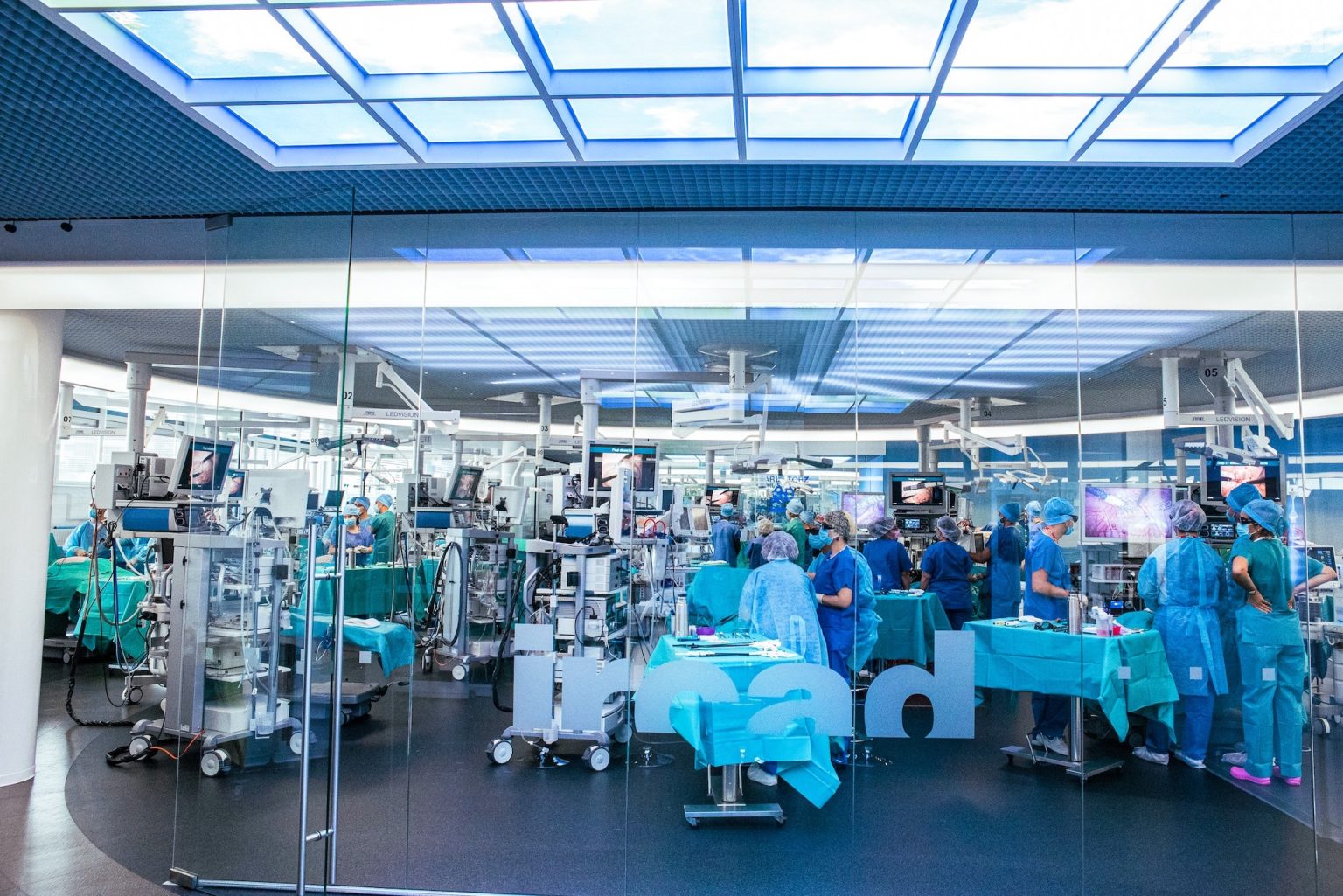
How can we contribute to training surgeons from all over the world, not only to the standards of conventional minimally invasive surgery, but also to emerging technologies such as robotic surgery or artificial intelligence?
For the fourth issue of the IRCAD newsletter, we wanted to highlight Websurg, the free online university that we created in 2000 in order to make surgical training accessible to all, regardless of location or resources. At the time, the idea of WebSurg came to us because it seemed essential to keep in touch with the surgeons who came to Strasbourg to train. But very quickly, the idea grew and the framework expanded considerably, relying on the development of audiovisual and Internet technologies. Today, WebSurg offers online surgical training in 14 specialties and 7 languages, with nearly 5,000 surgical videos available. The online university gathers a community of nearly 500,000 members from all continents, and is particularly successful on the American continent, in Brazil, the United States and Mexico, which rank first in the university’s audience, just ahead of France, Spain and Italy. All members participate in the exchanges and scientific ideas that accompany the progress of surgery.
Thanks to our partners, and despite the development of new features over the years, we are proud to have maintained a free training program that directly contributes to the improvement of care throughout the world. To talk about this, I would like to introduce Professor Antonello Forgione, a specialist in digestive surgery, who discovered IRCAD thanks to WebSurg while he was still a student, and who has now become Director at IRCAD and is also in charge of training in advanced colorectal surgery and robot-assisted surgery.

Professor Jacques Marescaux
President and founder of IRCAD

Pr Antonello Forgione,
Digestive surgeon,
Co-director of the IRCAD training program in minimally invasive and robotic colorectal surgery
Professor Antonello Forgione is a digestive surgeon specialized in laparoscopic, endoscopic and robotic minimally invasive approaches. He is the colorectal, transanal and proctological surgery course director. He also coordinates the editorial team of WebSurg, and has recently taken on the role of director at IRCAD.
WebSurg is the number one online surgical university. It is a revolutionary project because at the time of its creation, almost 25 years ago, the only two ways to learn about surgery were through books or in the operating room. The operating room is essential but it only allows you to learn from one surgeon: you are therefore dependent on his expertise, his talent but also his limitations. WebSurg has broken down barriers by allowing surgeons who were unable to travel, for financial reasons for instance, to see the best experts at work and to exchange with them virtually in order to progress. We have moved on from the small world of the operating room with only one surgeon who could perform conventional techniques in front of a few students to an open world, with the possibility to access many innovative techniques performed by the best surgeons in the world. This is a scientific and social revolution.
I was one of the first people to reap significant benefits from using the website. About 20 to 25 years ago, when I was a very young surgeon, I found information about IRCAD and WebSurg in Surgical Endoscopy, the reference journal in minimally invasive surgery to which I had subscribed. It was the very beginning of minimally invasive surgery and I needed information and videos to learn and to progress and so I decided to join the community to learn about new technologies.
Today, WebSurg has evolved and offers many different things. In addition to the videos of surgeries that are shared and commented by members and that give rise to exchanges, the platform offers the possibility to access presentations and courses given by the best international experts at IRCAD in Strasbourg, without having to travel and free of charge – or almost free of charge, as we ask for a small contribution to the technical costs for the webinars. Subsequently, we created a form of virtual talk show, where experts address a topic, a surgical technique, with the aim of advancing the state of the art and science, through discussions. These discussions can be very concrete, for instance: in a given operation, should the lymph node be removed to obtain a better result for the patient? These international exchanges, this collaborative spirit, contribute to accelerating medical progress for patients. They also lead to scientific publications.
You can create an account on WebSurg, regardless of your country of origin. The account is totally free, which is unique for a platform of this kind. And there are no intrusive ads, just a few discreet mentions of the sponsors. I insist on the fact that it’s free because it’s a major element to allow the greatest number of surgeons to progress. The platform is accessible 24 hours a day and gives access to very high quality videos, as well as animations made in Strasbourg by the team of medical illustrators, to clarify an anatomical detail or explain new technologies. It offers the possibility of interacting with the best experts, wherever they come from, without any barrier of nationality, culture or language, in a universalist spirit. It also allows everyone to share their expertise: a surgeon who is not well known from another part of the world, if he has an idea, a technique, a tip, can share it, provided he passes the review of the scientific committee. Scientific rigor is the only condition.
Progress, always progress for science and ultimately for patients. To achieve this, it is important to expand our international community: the upcoming opening of new IRCAD mirror institutes in Africa, in Rwanda, in 2023, and in China in 2024, will allow the community of surgeons who are passionate and driven by this spirit of progress to grow, with immense benefits for patients worldwide.
Established in 1994 by Professor Jacques Marescaux, IRCAD is a specialized institution focused on advancing research and training in the field of minimally invasive surgery. Based in Strasbourg, IRCAD has gained global recognition for its exceptional training programs, which attract around 8,800 surgeons from across the world annually, both in-person and through the free online Websurg university, boasting over 470,000 registered members worldwide. Stay up-to-date with IRCAD’s latest developments on Twitter, Instagram, Facebook or LinkedIn.
For more information: https://www.ircad.fr/
Contacts for the press:
FINN Partners – sante@finnpartners.com

Don’t miss the latest news from IRCAD.
Sign up here for our newsletters and communication mailings
to stay informed about us and our courses

Please note that the IRCAD administrative board and staff are closely monitoring the evolving COVID-19 situation, in full compliance with all applicable laws and regulations in France. The health, safety, and well-being of our participants, experts and staff are our top priority!
Despite the current context, the IRCAD stands firmly by your side to help you acquire knowledge and skills. Come and join us !
We would like to draw your attention that the « Vaccine Pass » is now mandatory in France since end of January 2022 and replaces the former « Health Pass » to access places that are open to the public, such as cinemas, museums, cafés and restaurants, hotels as well as the IRCAD Institute which welcomes participants in the framework of its courses and seminars. Thus, a PCR test without vaccination is no longer sufficient to take part in our courses.
The vaccine pass includes a proof of the following (one of the 3 items is sufficient):
Further information about the new vaccine pass can be found at :
We very much hope to be able to count on your kind understanding of those rules which have been set by the French Government and which our Institute is required to apply